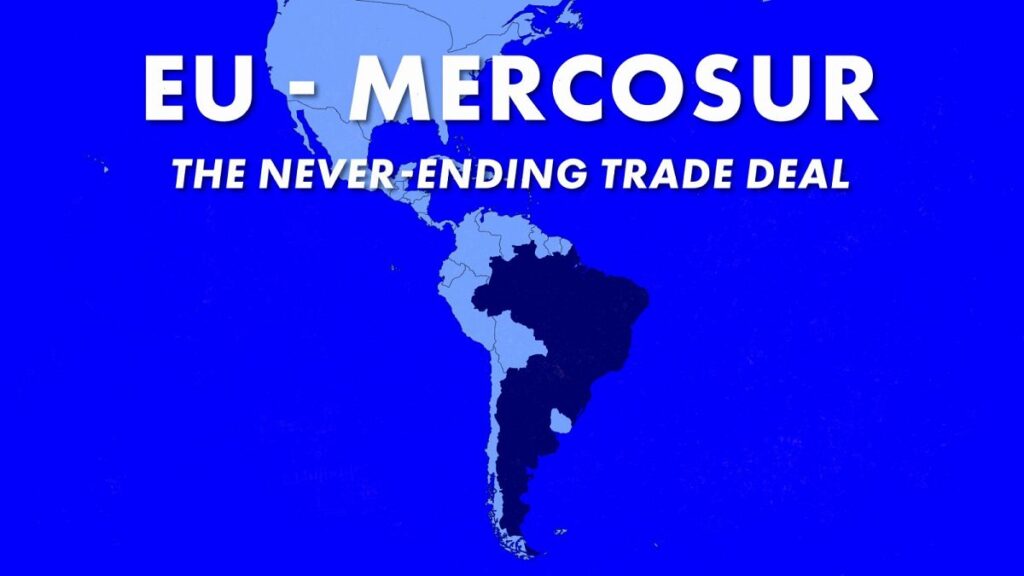Many EU products currently pay high export tariffs to the Mercosur bloc, comprising Argentina, Brazil, Paraguay and Uruguay. Some notable examples are cars (35%), wines and spirits (up to 35%), cheese (28%) and machinery (up to 20%).
With the EU-Mercosur Partnership Agreement, these tariffs will be eliminated or significantly reduced, creating new opportunities for a market of 780 million consumers, representing 25% of world trade.
The European Commission has just presented a proposal for the ratification process of the political agreement reached in December 2024. However, farmers, environmentalists, some groups in the European Parliament and member states oppose the agreement.
“It is a risky undertaking because if the entire agreement is ratified by national parliaments, some of them may oppose the text, as it happened already in the past,” explains Peggy Corlin, Euronews senior reporter for trade policy.
“The European Commission has decided to separate the trade part from the political one, so that the Council of Member States will vote the text by qualified majority. It will be also voted by the European Parliament by a simple majority, so there are more chances to be implemented quickly,” she added.
France, Poland and Italy are among the most sceptical member states, fearing the impact on their important agro-industrial sector. At least 15 member states, representing 65% of the EU population, must vote in favour for the trade agreement for it to enter into force.
The agricultural sector is one of the biggest critics of the agreement, which is why the European Commission recently added safeguards in a new legal text to be annexed to the deal. These include quotas limiting imports of products considered most sensitive (such as beef, poultry, sugar, rice and honey) and a €6.3 billion fund to help farmers affected by market crises.
A new geopolitical stance after ‘America First’
One of the drivers for faster ratification is the change to the geopolitical situation since the negotiations with Mercosur started around 25 years ago.
“The most important trading partner for Latin America has become China. We absolutely need to conclude this agreement also to become a more important trading partner for Latin America,” said Karel Lanoo, chief executive of the Centre for European Policy Studies (CEPS) think tank based in Brussels.
“After the almost scandalous EU-US trade agreement, the EU could be seen as un unreliable partner,” Lanoo said of the deal sealed in August, that will raise tariffs to 15% on around 70% of EU goods exported to the US.
The Mercosur deal will also increase access to essential raw materials, which could significantly impact EU industry. “It’s again an opportunity for us reduce drastically the huge dependence we have from China, which was built up without us noticing,” said the CEPS analyst.
A group of left-wing MEPs is leading a draft resolution to block the ratification process of the agreement with Mercosur before the European Court of Justice, criticising the solution proposed by the European Commission.
Watch the video here!
Journalist: Isabel Marques da Silva
Content production: Pilar Montero López
Video production: Zacharia Vigneron
Graphism: Loredana Dumitru
Editorial coordination: Ana Lázaro Bosch and Jeremy Fleming-Jones
Read the full article here

